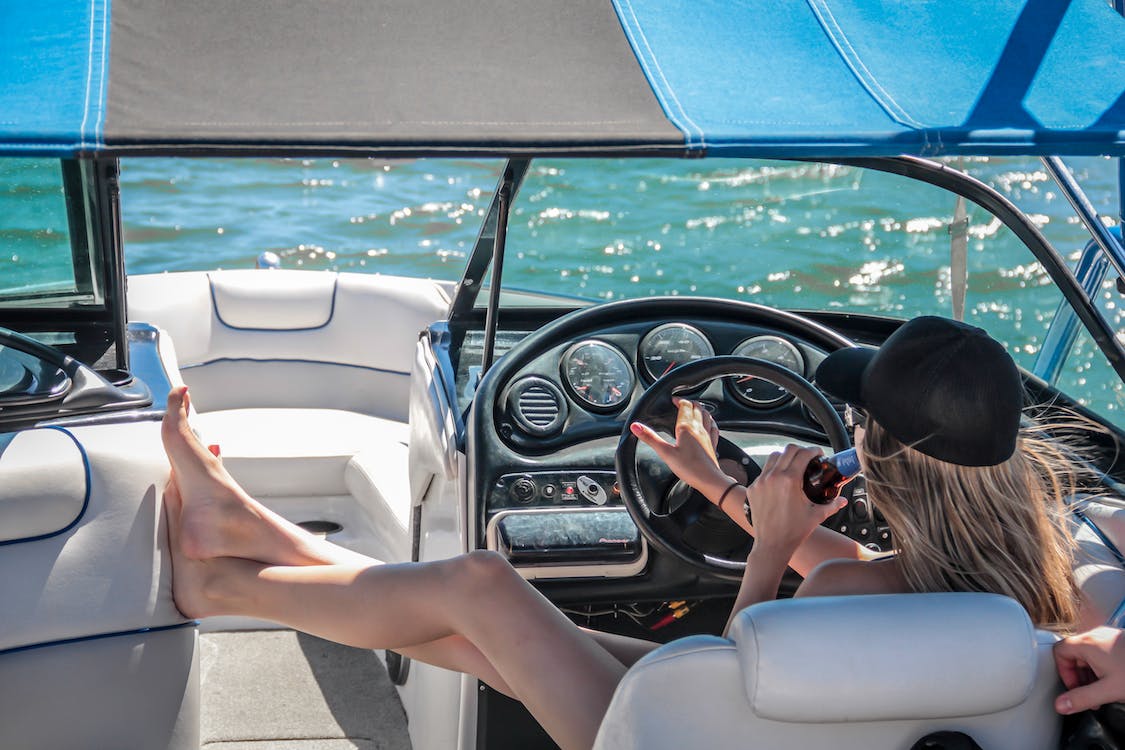Are you planning a boat trip? Whether you’re a seasoned sailor or a first-timer, you must have a comprehensive checklist of things you need on board. Not having the essentials can lead to an uncomfortable and potentially dangerous experience.
If you plan to ship your boat products through freight forwarding, consider contacting an FBA freight forwarder, fbabee.com, to handle your shipment. In this article, we’ll provide a complete checklist of everything you need on a boat to enjoy your time on the water worry-free.
Must-Have Things You Need On A Boat
Heading out on a boat trip? Whether it’s for a day or an extended journey, there are a few must-have things you should bring along. These items will ensure that you are prepared for any situation. From safety gear to entertainment, here are some of the essential things you need:
1. Provisions For The Day
When preparing for a day on a boat, provisions are key. Food, water, and sunscreen are the basics. Remember to bring a cooler and ice for perishables. A first aid kit and life jackets should also be included. Check the weather forecast and bring appropriate clothing.
Binoculars, a compass, and a map are useful for navigation. Consider entertainment options like music or games. Pack trash bags to keep the boat clean. Also, let someone know when you plan to return. With these provisions, you’ll be ready for an enjoyable day on the water.
2. Phone And GPS Devices
A phone and GPS devices are essential on a boat. With a phone, you can call for help during emergencies. GPS devices provide accurate location and navigation information. Ensure your phone and GPS are waterproof and have good battery life. Consider bringing a backup battery.
You can also ensure uninterrupted use of your navigation apps on the go by investing in a portable power station in supplies. These devices provide reliable and convenient power sources, keeping your devices charged and protected from water damage.
3. Emergency Repairing Tools
Whether on the open water or docked in port, having emergency repairing tools on hand is essential for any boater. These items can mean the difference between a minor hiccup and a major crisis, from spare fuses and wire cutters to duct tape and pliers.
Other must-haves include a reliable flashlight, a multi-tool, and a marine first aid kit. Packing extra screws, bolts, nuts, and spare fuel filters and hoses is also a good idea. With a well-stocked toolbox, you can tackle any unexpected repairs.
4. Proper Documentation
Proper documentation is crucial for any boat owner. It ensures legal compliance and safety at sea. To avoid any last-minute hassle, create a complete checklist. Include the boat’s registration papers, insurance documents, and ID proofs.
You also need to carry navigation charts and emergency contact details. Remember to check the boat’s maintenance log and repair history. Keep all the documents in a waterproof bag or container. Before setting sail, review the checklist and make sure you have everything.
5. First Aid Kit
When you’re out on the water, safety should always be your top priority. A first aid kit is a must-have item for any boat, regardless of size or purpose. You never know when an accident or injury might occur, so it’s best to be prepared.
Your first aid kit should include adhesive bandages, gauze pads, antiseptic wipes, and medical tape. It’s also a good idea to have a pair of scissors, tweezers, and gloves on hand. If you have a serious medical condition, such as allergies or asthma, pack medications.
6. Flashlight? Yes!
A flashlight is a must-have on any boat. It helps you navigate through dark spaces. You can use it to signal for help in emergencies. Make sure to pack extra batteries. Waterproof flashlights are ideal for boating. A headlamp can be helpful for hands-free lighting.
LED flashlights are energy-efficient and long-lasting. A rechargeable flashlight is a sustainable option. Strobe lights can be useful for attracting attention. Remember to test your flashlight before leaving the shore. Stay safe and be prepared with a reliable flashlight on board.
7. Fire Extinguishers
Fire extinguishers are a must-have on any boat. They can prevent small blazes from turning into major disasters. Make sure to have at least one extinguisher on board. It’s recommended to have a multi-purpose ABC extinguisher as they can extinguish any fire.
Check the pressure gauge to ensure it’s charged. Store the extinguisher in a convenient and accessible location. Ensure everyone knows where the extinguisher is. Train your crew on how to use the extinguisher properly. Remember to replace your extinguisher every few years.
8. Visual And Sound Signaling Devices
Visual and sound signaling devices are crucial on any boat. They help you communicate with other boats in emergencies. For visual signaling, consider flares, strobe lights, and signal flags. Sound-signaling devices like a whistle or horn are also essential.
Make sure to check the battery levels on these devices regularly. Having a backup set of batteries is always a good idea. In addition to the required signaling devices, consider a spotlight. Invest in high-quality signaling devices to ensure they work when needed.
9. Basic Cleaning Supplies
Basic cleaning supplies are essential on a boat. You’ll need a broom and dustpan to sweep up dirt and debris. A mop and bucket are also necessary for washing floors. Cleaning clothes and sponges are perfect for wiping down surfaces. A scrub brush is great for tackling tough stains.
You should also have a garbage bag to dispose of trash properly. A vacuum cleaner can come in handy for deep cleaning. Remember to bring a bottle of all-purpose cleaner for versatile cleaning tasks. Having these supplies on hand will keep your boat clean and tidy.
Wrapping Up
Having a complete checklist for your boat is essential. It ensures you have all the necessary equipment and supplies to make your trip safe and enjoyable. Some important items include life jackets, navigation tools, first aid kits, and communication devices.
It’s also crucial to have a pre-departure checklist to ensure everything is in order before leaving. By following these guidelines, you can avoid accidents and mishaps while on the water. Remember to prioritize safety and always be prepared for any situation.

